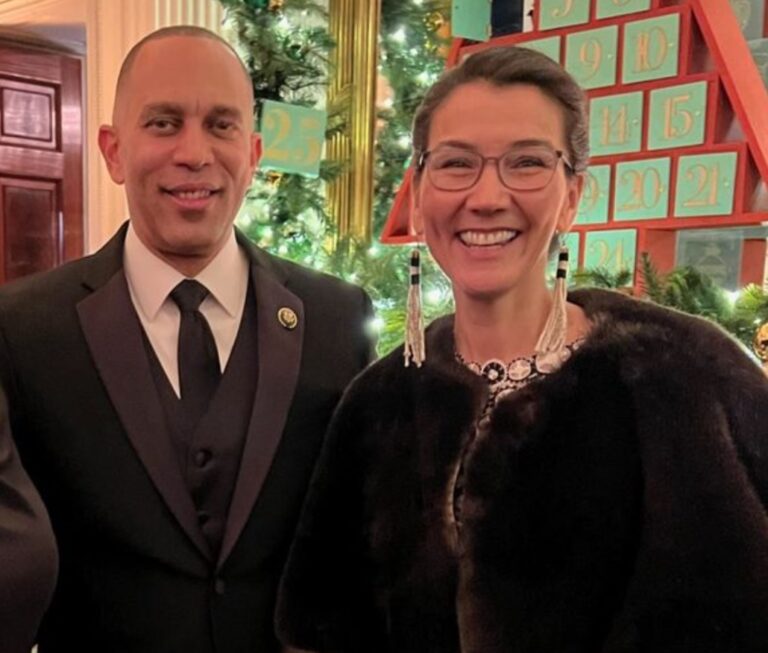A public hearing in Anchorage on the Ambler Road draft supplemental environmental impact statement will take place at the Wilda Marston Theatre in the Loussac Library at 5 pm Wednesday, sponsored by the Bureau of Land Management.
There are many conflicting public events on Wednesday night, but the anti-road coalition, with major outside funding, will be bringing out dozens of people to hold signs and to testify against the road. It looks like it’s shaping up to be a hearing that will strongly favor the viewpoint of the no-roaders.
Click here to reach the Ambler Road Public Comment Link at BLM
The proposed road is an industrial-only access road that would stretch 211 west from the turnoff at the Dalton Highway. The road would traverse 26 miles of Gates of the Arctic National Park, as well as land owned by Doyon and NANA Native corporations.
Three different routes are proposed to access the mining district, and there is also a “No Action Alternative,” which would deny all road permits associated with the project.
After a lengthy permitting process, the Ambler Access Project was awarded a positive “record of decision” in 2020. Then, under the Biden Administration, the Department of Interior decided it needed a do-over to address cultural resources and subsistence issues. Now, the entire project is in peril because President Joe Biden is in his reelection cycle and may not want to upset his base.
The Supplemental Environmental Impact Statement is 1,200 pages long and now includes cautions about caribou migration, salmon spawning, sheefish habitat and other issues that were bought to the department’s attention under the Biden regime.
The road to the state mining district is, however, guaranteed under federal law. The area has supplies of critical minerals that the nation currently is exporting from places like China and through slave labor in parts of the African continent.
Both Sen. Lisa Murkowski and Sen. Dan Sullivan favor the Ambler project.
“This is particularly important as China cuts off exports of gallium and germanium, cobalt is produced through modern-day slavery in the DRC, and some of our best analysts are forecasting shortages of copper within a decade,” said Sen. Lisa Murkowski in October. “Given the clear terms of the law and the strategic importance of this project, you would expect the Biden administration to prioritize its approval with reasonable mitigation measures for subsistence. You would also expect them to recognize that Alaska has repeatedly demonstrated that subsistence rights can safely co-exist with road infrastructure. My team and I will review this document closely, but based on what Interior released today, it does not appear they have undertaken the serious, credible analysis that we expected and deserved.”
“Our country is in the midst of one of the most dangerous periods since World War II. One of America’s greatest strengths over our adversaries is our energy and critical minerals. Remarkably, the Biden administration has sought to unilaterally disarm these strengths, including with today’s Ambler Road supplemental EIS, which sets up more hurdles to access one the biggest deposits of much-needed critical minerals in our country,” said Sen. Dan Sullivan in October.
The supplemental EIS is located at this federal government link.
With the supplemental EIS done, it sets the basis for the Biden Administration to move forward or deny Alaska access to its minerals. Some of the decisions include these alternatives:
No Action Alternative. The No Action Alternative evaluates what would occur if the BLM does not grant a road ROW to AIDEA and no road is built. Federal agencies are required to evaluate taking no action as an alternative in an EIS. The No Action Alternative provides a baseline for comparison to the other alternatives, and it is a potential outcome of the EIS.
Alternative A: Alternative A is AIDEA’s proposed route, beginning at Milepost (MP) 161 of the Dalton Highway and extending west along the southern flanks of the Brooks Range to the Ambler River within the District. It crosses GAAR. It would be 211 miles long, with 25 miles crossing BLM-managed land. The trip distance—Fairbanks to the western road terminus—would be 456 miles.
Alternative B: Alternative B is AIDEA’s proposed alternative route to the Dalton Highway based on input from the NPS to minimize the amount of NPS land crossed and to avoid large waterbodies. It is a variation on Alternative A, with the same termini. It dips southward near GAAR to cross the National Preserve farther south than Alternative A. It would be 228 miles long, with 25 miles crossing BLM- managed land. The trip distance—Fairbanks to the western road terminus—would be 473 miles.
Alternative C: Alternative C grew out of scoping comments on the original EIS that suggested a route in the Tanana, Hughes, Hogatza, and Kobuk area, and is being carried forward in this Supplemental EIS. The route begins at MP 59.5 of the Dalton Highway, passes through the Ray Mountains, and proceeds generally to the northwest to pass just north of Hughes and just west of Kobuk. It terminates at the Ambler River within the District. It would be 332 miles long, with 274 miles crossing BLM-managed land. The trip distance—Fairbanks to the western road terminus—would be 476 miles.
Combined Phasing Option for all Action Alternatives: The combined phasing option applies to all of the action alternatives (Alternatives A, B, and C) and would require construction to occur in a 2-phased approach, as opposed to the 3-phase approach proposed by AIDEA. This option would eliminate Phase 1 and would initially build the entire road to Phase 2 standards. Under this option, the first road constructed would be 4 feet wider than Phase 1, as described under the action alternatives. Additionally, it would have a thicker road embankment that would provide more insulation to mitigate potential impacts to permafrost, water quality, and fish as compared to the roadbed associated with Phase 1 of the action alternatives. Much of the infrastructure required for Phase 2 standards of construction is the same as Phase 1, so infrastructure requirements for culverts and bridges for this option would be the same as the action alternatives.
Ambler Metals is an independently operated company located in Alaska between South32 and Trilogy Metals in 2020, including a partnership with NANA Regional Corporation for exploring and developing sate land in the Ambler Mining District.
The comment period closes on Dec. 22.
Click here to learn how to participate in the process.








